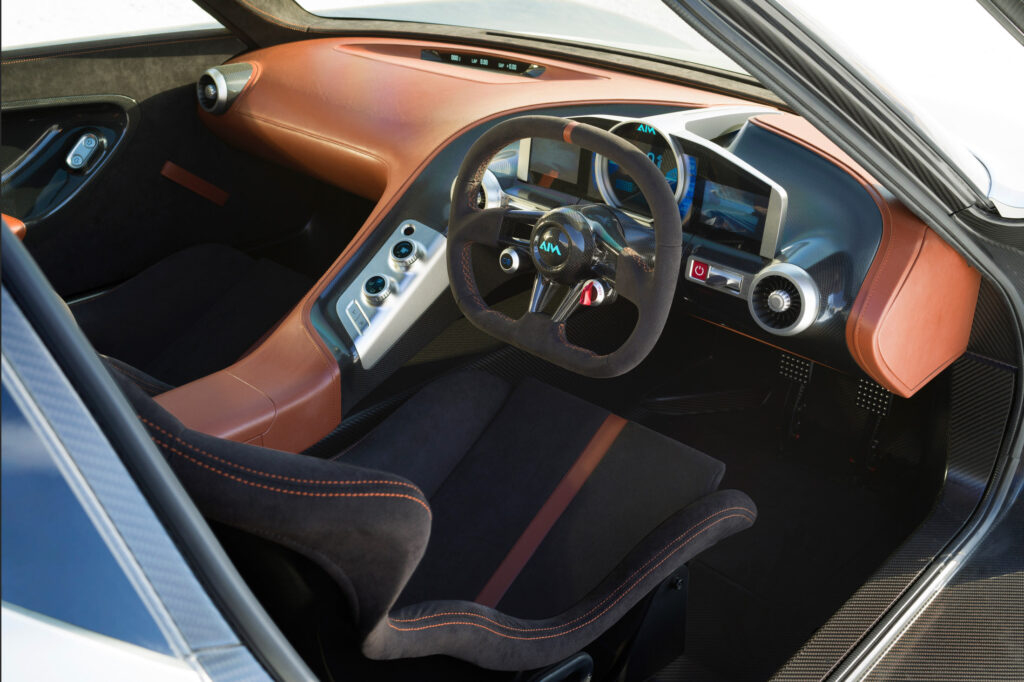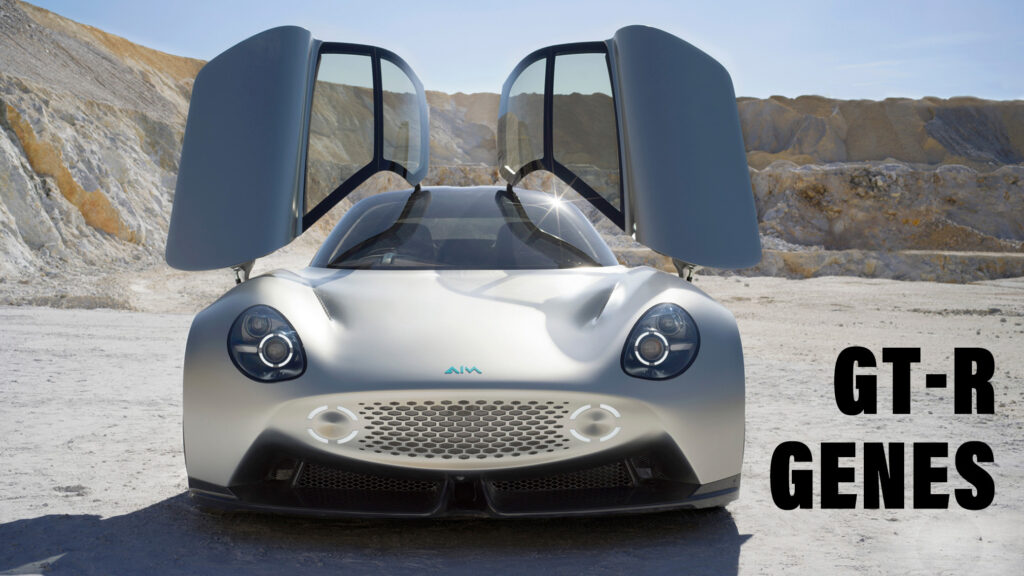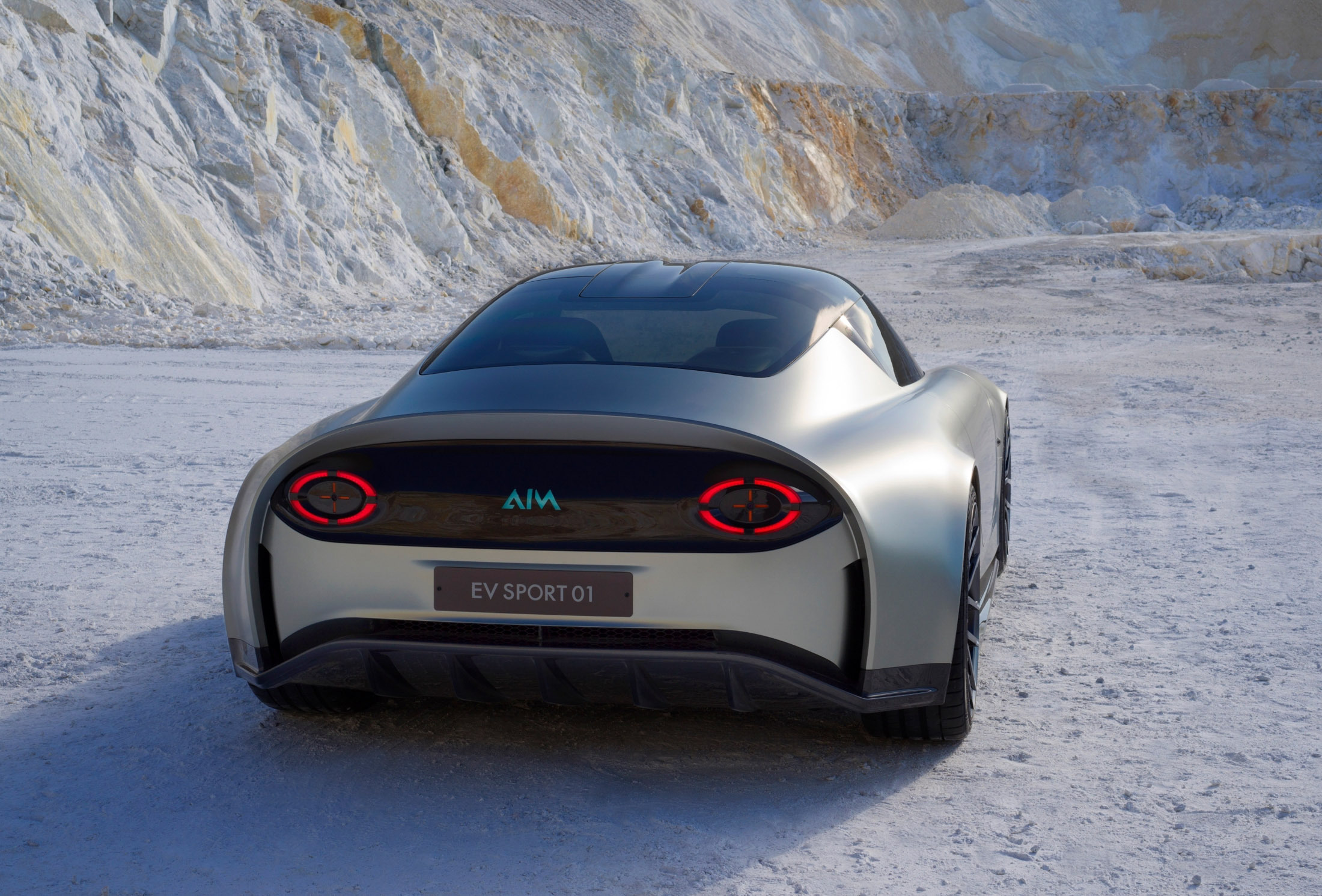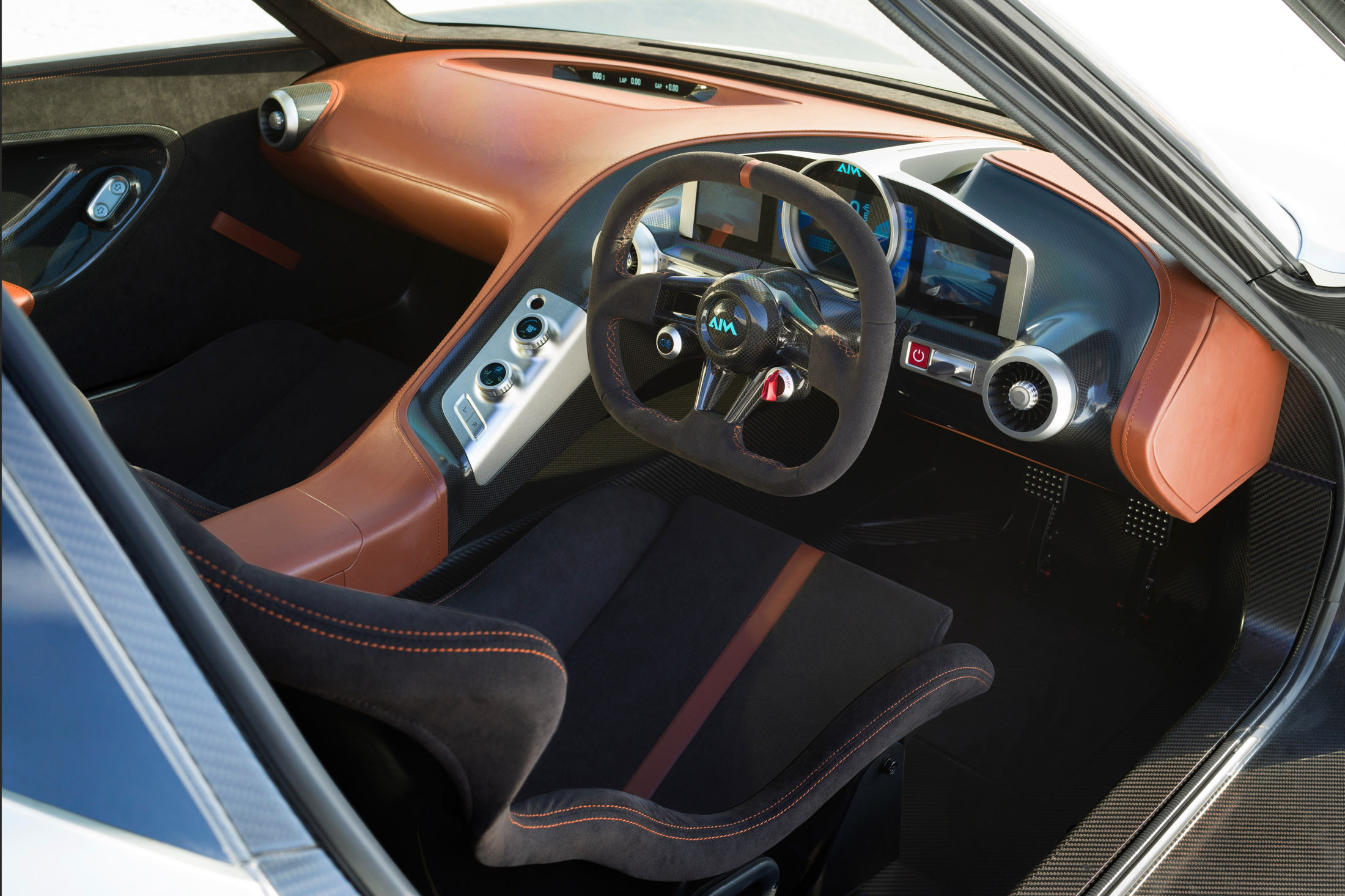EV startups might not have names most of us recognize, but the clean sheet of paper they offer designers means they’ve been able to attract some big names from the car industry, including former Lamborghini designer Filippo Perini, who’s now at Aehra, and Shiro Nakamura, a former Nissan designer and the creator of the AIM EV Sport 01.
Calling Aim a ‘startup’ is a little unfair since it’s been around since 1998 as an engineering company active in the motorsport world. But the EV Sport 01 is its first full car, and following a static unveiling at the Automobile Council classic car show in Japan back in April, it’s preparing to make its dynamic debut at this month’s Goodwood Festival of Speed.
The curvy sports car’s butterfly doors and compact size (it measures just 153.5-in / 3.9 m long) remind us a little of of the JDM Toyota Sera of the 1990s, but Nakamura claimed he looked further back for inspiration.
“We learned from the spirit of the great sports cars of the past, helped by the RWD configuration and layout. I wanted to express dynamism with sophisticated elegance through a simple, clean design,” said Nakamura, who penned the Nissan GT-R in a previous life. “The EV Sport 01 has minimal form language and avoids exaggerated and complicated surfaces, reminiscent of the great European and Japanese sports cars of the 1960s.”
Related: Ex-Nissan Design Boss Shiro Nakamura Styles Wild AIM Electric Coupe

The rear-drive layout Nakamura mentions is interesting because it makes the dual-motor EV Sport 01 different from most cars with two electric motors, which usually fit one at each end of the car, giving it all-wheel drive. In the AIM’s case, both motors are located at the rear where they generate a combined 483 hp (490 PS / 360 kW) according to the company’s latest tech info.
That’s substantially less than the 600 hp (447 kW / 608 PS) we reported the Sport 01 having when it made its debut in April, but should still provide reasonably strong performance given the relatively low 3,140 lbs (1,425 kg) curb weight. That weight was achieved through extensive use of of carbon panels over an aluminum structure, while the front and rear suspension is a classic double wishbone layout.
AIM says the car was only developed as a concept to showcase its abilities and its proprietary powertrains, but the enthusiastic reception it has received so far might persuade the company to greenlight a small production run.








